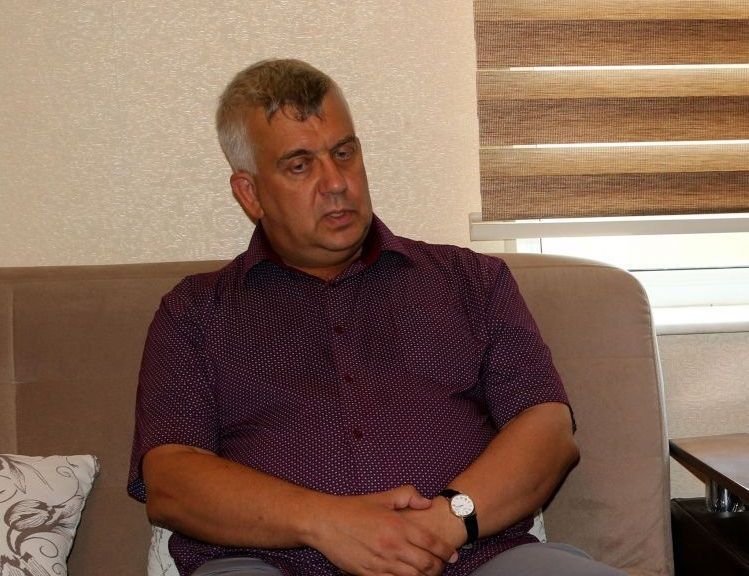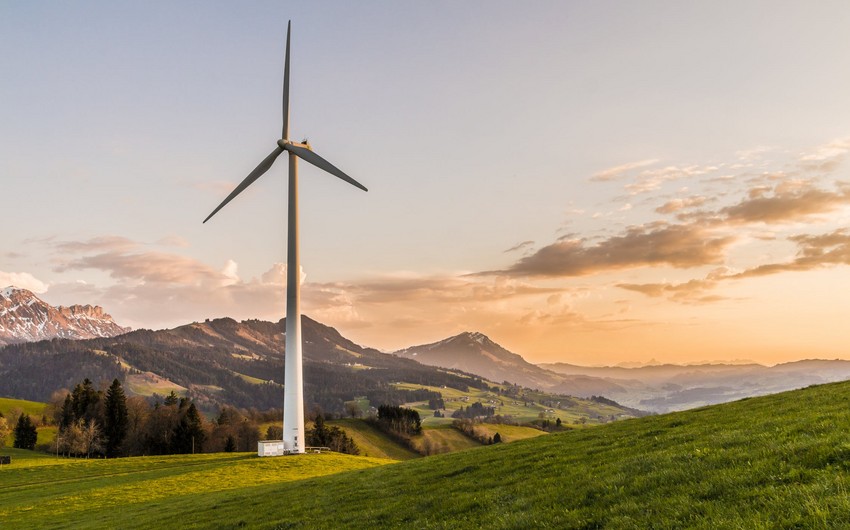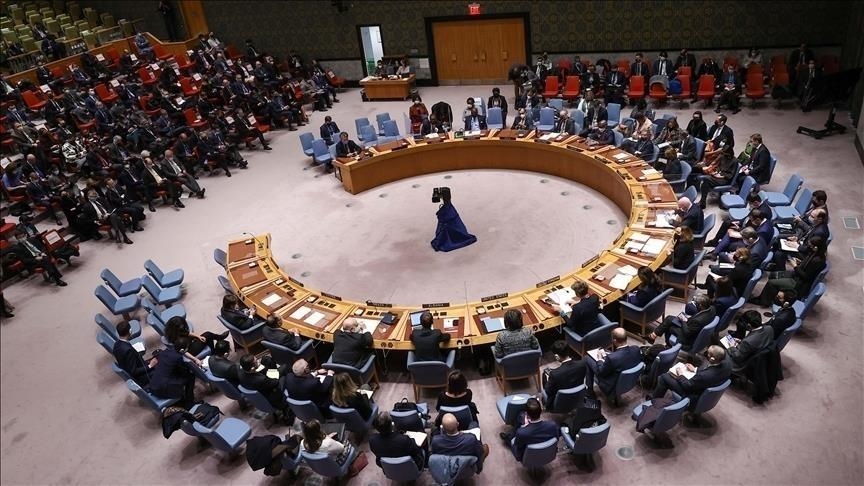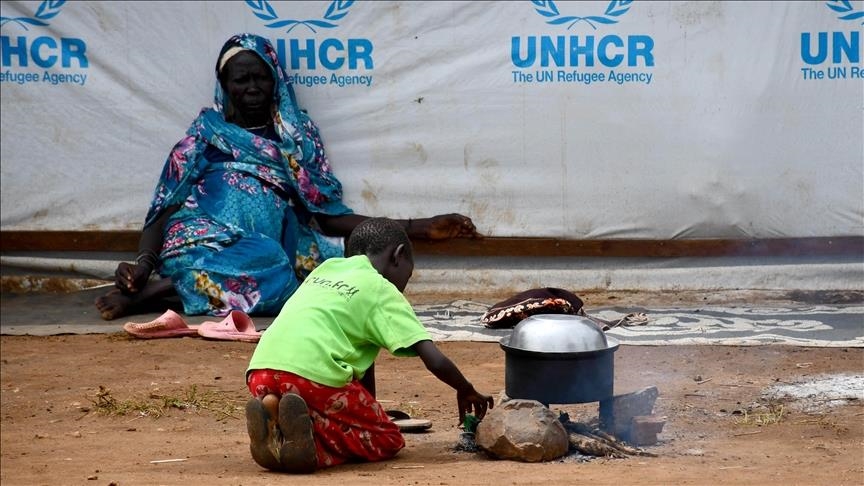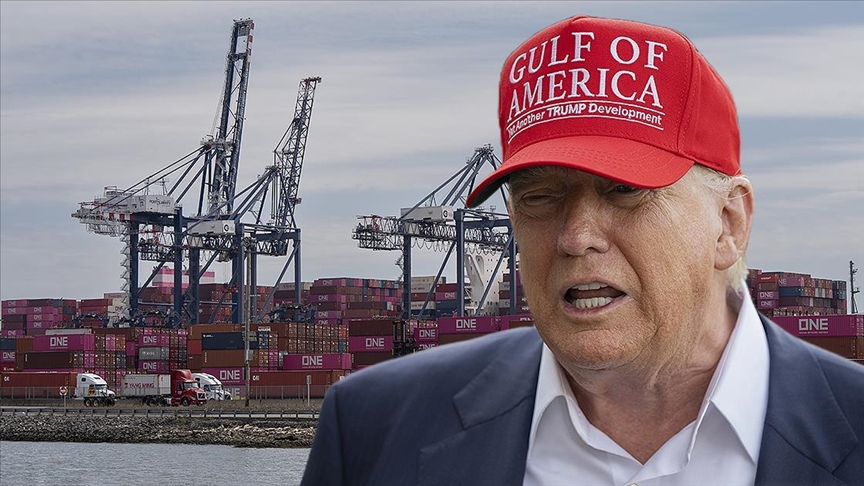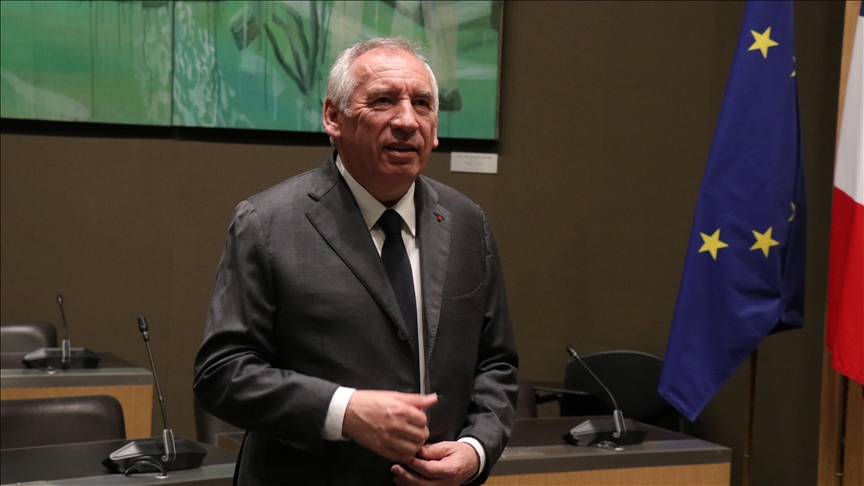
- Oleg Yuryevich, first of all, allow me to congratulate you on the award, though in the modern sense it is very exotic, but in any case fair and deserved. How did it happen that you became a holder of the Russian Imperial House Order?
- This award is the second one that i am receiving from the head of the Russian Imperial House. The one which I was awarded earlier in the spring of 2016 was the Order of St. Stanislav of the 3rd degree. As a professional historian, I very much appreciate this sign of attention to my scientific works from one of the oldest monarchical families in Europe, because no matter how anyone relates to this on their political convictions or simply on emotions, this fact in any case means preservation, despite all the revolutions, coups d'etat and other tragic geopolitical circumstances, continuity and traditions that exist between the countries and modern Russia. It is also very important for me. Whether someone likes it or not, the Order of St. Anne is part of my national history, and when you receive news of such an award, which with various kinds of reservations is still recognised throughout the world, you begin to realise that you yourself become part of this story. If we talk about subjective feelings, then this greatly increases your own self-esteem having a feeling that you are already out of time while remaining in the realities of the universe surrounding you. It may be that I myself have fantasised too much of myself, but the inner feelings from this are still purely positive.
In my life, it turns out that I receive each of the orders of the Russian Imperial House carefully after the publication of my next monograph on certain aspects of the history or present day of radical Armenian nationalism. In 1915, in Baku, a year later, in Moscow, my monograph “The History of Transnational Armenian Terrorism in the 20th Century” was published in Russian (in 2016 it was also published in English translation in Berlin), after which I was awarded the Order St. Stanislav 3rd degree. In the summer of last year, my monograph “The State Policy for the Heroisation of Nazism in Armenia” was published in Baku, and in December a decree of the head of the Russian Imperial House on my awarding of the Order of St. Anna of the 3rd degree was signed. I do not think that this can be considered an accidental coincidence; such a practice is similar to a trend that is being implemented in practice according to the laws of formal logic. It is very similar to the fact that the Russian Imperial House is unhappy with what is happening today in the former Irevan province of the Russian Empire. One of the most important reasons and driving forces of the death of the Russian Empire in 1917 is through which every action directed against Armenian nationalism and separatism was evaluated positively. Of course, Armenian nationalism became a knife in the back and for the existence of the USSR at the turn of the 1980-1990s, this fact is not particularly interesting for Russian monarchists.
Nowadays, the surviving representatives of the dynasty of the former Russian emperors Romanov, for completely obvious and understandable reasons, are closely following what is happening in the vastness of their former possessions, not only in modern Russia or the post-Soviet area, but also in Finland and Poland, although quite clearly realise that the possibility of restoration of their power anywhere in the former Russian Empire is negligible. Nevertheless, the head of the Russian Imperial House, Grand Duchess Maria Vladimirovna, whose dynastic status is recognised by all the existing monarchies of Europe from the Pyrenees and Britain to Scandinavia, is a rather influential figure in the backstage of world politics: on the one hand, she is a kind of personification of a very specific moral and ideological the beginning and center of attraction of sympathies of almost all monarchists, at least from the post-Soviet area, and on the other hand, it manages a fairly significant amount of financial resources, which in itself is also significant conditions of the modern global economic crisis. The opinion of the representatives of the Romanov dynasty does not sound from the high tribunes of international organisations, but is taken into account in the silence of the offices of the most important banking houses, therefore the order of the Russian Imperial House may be of little value for public policy, but the fact of its presence under certain circumstances is a passage to a more elite circle of informal communication .
- Do you consider yourself a Russian Orthodox monarchist?
- You have a strange formulation of the question, which indicates a very stereotypical, clearly in the spirit of the ideology of the USSR, and an extremely inadequate view of traditional Russian monarchism as an ideological and political phenomenon. In the Russian Empire, the “faithful servant of the tsar and the Fatherland” was considered to be anyone who took the oath of allegiance to the state and honestly performed it. It is enough to recall the fate of Huseyn Khan Nakhichevan, a general from the cavalry of the Russian Imperial Army, commander of the 3rd cavalry corps during the First World War, who was shot in 1918 in the courtyard of the Peter and Paul Fortress in St. Petersburg along with lvumyu princes from the Romanov dynasty. So in Russia they paid attention to religion and nationality only of the enemies of the state, and not of its law-abiding subjects, therefore, in relation to the history of the country until 1917, one can and should speak of "imperial internationalism" rather than "Great Russian chauvinism." By the way, modern Azerbaijan in terms of the opportunities provided by the state for self-realisation to its citizens of various nationalities is no different from pre-revolutionary or modern Russia, which cannot be said about Armenia, from which almost all “Gentiles” and “foreigners” were expelled. At least, this point of view, as I understand it, is inherent in the Russian Imperial House today, the proof of which is the awarding of its orders by the famous Russian-Azerbaijani historian Eldar Ismailov, author of the books “Azerbaijanis - St. George Knights”, “Azerbaijanis in the Convoy of the Imperial Majesty” and a number of other historical and genealogical studies at a fairly enough status.
Using the specific example of this colleague of mine, it is quite definite to say that the head of the Russian Imperial House does not have that acute prejudice against Azerbaijanis as such and Azerbaijan as a country, unlike the one that is present with regard to Armenians and Armenia. Azerbaijan is perceived among Russian monarchists rather as a bulwark of statehood, which cannot be said about its neighbors in the South Caucasus region, whose names have become synonymous with political instability, overt foreign influence on the internal political affairs of these states, and they are perceived as centres of anarchy and chaos generated by ethnic mentality of egocentrism and national egoism, diametrically opposed to the ideals of "imperial internationalism", about which I spoke above. The manifestations of Azerbaijani nationalism, as a rule, do not go beyond demonstrating the feelings of patriotism and national dignity, which is characteristic of peoplewith a long tradition of national statehood, therefore they are perceived from the outside as completely organic and do not cause rejection. Also the attitude of the representatives of the Russian Oratorio to your country is more friendly.
As for my political sympathies and antipathies, I perceive any religion or denomination rather as a historical and cultural tradition inherent in each nation individually due to its civilizational development. In this sense, for me there is no difference in what kind of religious movement a person identifies with, the main thing is that he is not a scum, a goon or a moron. And the concept of monarchism in the modern world is very blurry, and personally I can’t say for sure where today there is more democracy - in the Kingdom of Sweden or in the mono-ethnic Republic of Armenia? In order to be a little better understood by your readers, I’ll tell you a story from the recent history of the Royal Norwegian dynasty: in 1927, the Norwegian Workers' Party, which was considered revolutionary and almost communist, became the largest party in parliament, and at the beginning of next year, a government formed this party came to power. The aristocracy demanded that King Haakon VII not appoint her leader Christopher Hornsrud as prime minister, but Haakon refused them and asked Hornsrud to form a new government, and in response to criticism of this step, he said:"I am the king of the communists." Therefore, I will answer your question this way: I have always fought for the sovereignty and security of the country and its people, while the political regime and form of government are of no fundamental importance to me.
- Do you expect a change in the attitude of the authorities towards your research in your homeland, after all, everyone knows that a couple of years ago the Armenian diaspora of Russia through law enforcement bodies created big problems for you?
“All that you speak of is far behind.” I don’t want to praise myself, but thanks to my research, as well as the efforts of the Armenian diaspora to discredit them at various levels of the Russian government, after which they became aware of my research, the attitude of the Russian political establishment to the issue of Armenian nationalism and the threat posed by it has changed dramatically. The Armenian lobbyists, either out of their own stupidity, or because of their inherent snobbery and self-confidence, also had a hand in this, since the issue of holding or not bringing me to criminal responsibility for publishing a monograph on the history of Arabian terrorism in 2015 and 2017 twice decided at the level of Secretary of the Security Council of Russia Nikolai Patrushev. At the “very top”, it was decided not to touch me, but to pay close attention to the essence of the problems that I wrote about. Therefore, my new monograph “The State Policy for the Heroisation of Nazism in Armenia” was more calmly and even favourably received by the Kremlin and Lubyanka. Moreover, the FSB of Russia, after the well-known statement of the President of Azerbaijan Ilham Aliyev at a meeting of the Council of Heads of State of the CIS in October last year in Ashgabat, released documents on the criminal connection of the leader of Armenian nationalists the Nazis Nzhdeh. In 2015, this was basically impossible, but four years later it became a reality. As well as the fact that the authorities of the Krasnodar Territory of Russia and the city of Armavir, who, since 2012, “did not notice” the commencement of a memorial sign to the Armenian nationalist and Nazi criminal Nzhdeh on their territory, suddenly not only “noticed” it, but also forced the initiators of its installers - the Armenian religious community of the church in the name of the Assumption of the Blessed Virgin Mary - to dismantle it under the threat of bringing the rector of this church Ter-Makar Terteryan to criminal liability under article 354.1 of the Criminal Code of the Russian Federation “Heroization of Nazism”.
All these processes, facts and events clearly demonstrate that the attitude of the Russian authorities to the problem of Armenian nationalism and the Armenian political lobby associated with it within the country has changed dramatically in the last two or three years. And this is my share of practical participation. Therefore, the Order of St. Anne of the 3rd degree of the Russian Imperial House, I perceive as a well-deserved reward for my work. I perfectly understand that it is far from equivalent to the state awards of the Russian Federation or the Republic of Azerbaijan in terms of social status or a source of material benefits, but for me, the source of internal emotional comfort, intellectual inspiration and increasing the level of one's own self-esteem works quite effectively.

Interview by Anastasiya Lavrina

